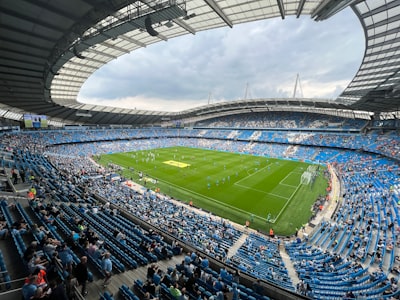Leicester City’s fairytale Premier League victory in 2016 isn’t just a sports phenomenon; it’s a chapter intricately bound to the fortunes of their Thai owners, the Srivaddhanaprabha family and the sprawling King Power empire. Yet, as The Telegraph reports, the scaffolding holding up this rags-to-riches story is now shaking under serious financial strain in Thailand.
Key Context: The Stakes Behind the Struggle
King Power, led by Aiyawatt Srivaddhanaprabha after his father’s tragic helicopter crash, built its wealth on state-sanctioned duty-free retail monopolies in Thai airports. Flourishing tourism ensured reliability, but Thailand’s post-pandemic economy and government reforms have slashed duty-free sales and exposed King Power’s overreliance on a single sector.
Main Dilemmas:
- Overconcentration Risk: King Power’s limited diversification means any hit to Thai tourism or regulatory environment wreaks havoc far beyond retail.
- Football Reliance: Leicester’s Championship ambitions are intimately tied to the financial health of its parent company. Budget tightening could mean asset sales, reduced wage bills, and diminished competitiveness.
- Public Scrutiny: The intertwining of English football clubs with foreign business empires raises big questions: Should fans worry more about owners’ off-pitch troubles? What does this mean for the global club ownership model?
| Upsides of Overseas Ownership | Downsides & Dilemmas |
|---|---|
| Access to capital and ambition | Clubs risk being pawns in corporate struggles |
| Global exposure and brand appeal | Sudden cutbacks if parent business suffers |
| Access to new markets | Disconnect between fans and decision-makers |
Notable Developments
- King Power reportedly exploring asset sales, refinancing, and lobbying for regulatory relief.
- Leicester’s future transfer plans may be hamstrung, echoing financial squeeze seen at other clubs whose owners faced external crises.
- The story revives memories of other troubled cross-border investments: Inter Milan’s Chinese ownership woes, or Newcastle pre-takeover.
Bigger Picture: Football’s Fragile Foundations
This episode underscores the vulnerability of even the best-run clubs when their patrons’ fortunes falter—highlighting an urgent industry question: Is global football, as presently structured, too exposed to the volatility of distant corporate empires?
Conclusion: Football fans and investors must recognize that off-field corporate fortunes are no longer behind-the-scenes—they’re core to the team’s destiny. The Leicester drama is more than a local club issue; it’s a test of how resilient the global football model really is when owners’ empires start to crack.
This article was inspired by the headline: 'Leicester City owners’ Thai empire in serious financial trouble - The Telegraph'.

Comments
No comments yet. Be the first to comment!